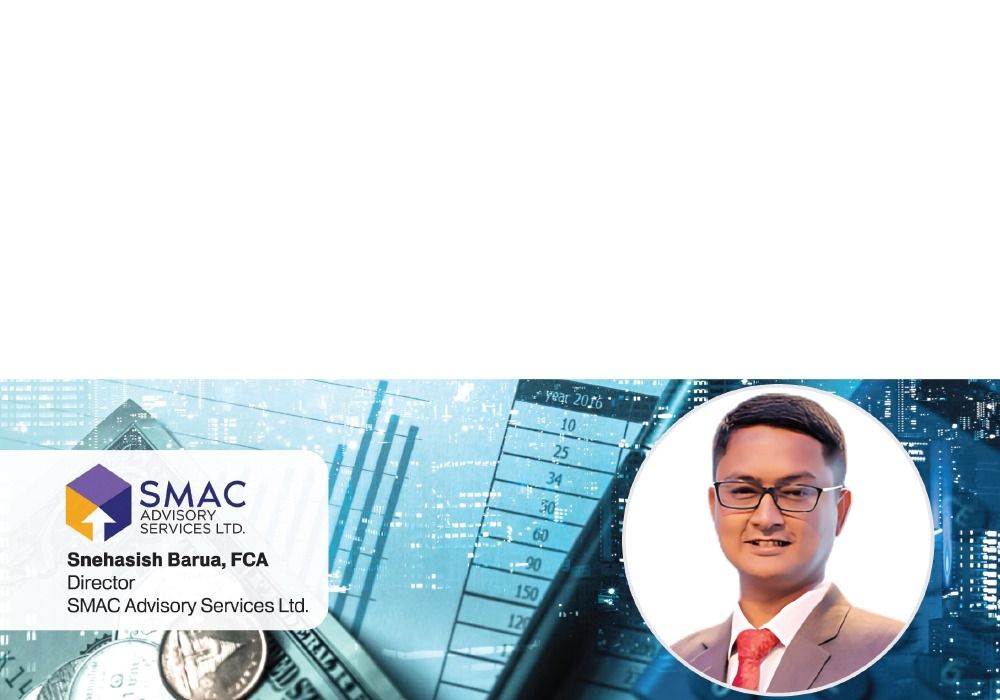- info@ficci.org.bd
- |
- +880248814801, +880248814802
- Contact Us
- |
- Become a Member
- |
- |
- |
- |
- |

The interim government will present the Finance Bill on June 2, 2025. Currently, Bangladesh's economy faces several major challenges. These includes improving law and order, increasing investment from both local and foreign sources, creating more jobs, unabated inflation, managing foreign exchange reserves, increasing and diversifying exports and finding new markets to reduce dependency on existing market which we have experienced through Trump administration, improved financial and banking sectors, improving tax policies and ensuring coordination between financial and economic policies, ensuring good governance and maintaining overall economic stability
Because of these challenges, we expect changes in income tax, VAT (Value Added Tax), and customs laws.

Income Tax Proposals:
1. Corporate Tax Rate:
To simplify complex tax rate for other than listed & other industry, a fixed 25% tax rate is proposed, coupled with a gradual decrease in the allowable percentage of cash transactions: 20% in the first year, 15% in the second, 10% in the third, and 5% in the fourth. Exceeding these cash transaction limits would result in a higher tax rate of 27.5%. This aims to make tax compliance easier while progressively encouraging the use of banking channels for business transactions.
2. Source Tax Deduction (TDS):
It will be rare to find a transaction that does not attract source tax (TDS). Although TDS has been introduced, no surveys were undertaken to set appropriate rates, resulting in deduction rates exceeding tax payable on actual business profits. This inflates the effective tax rate and raises the "cost of doing business," hindering not only Bangladesh's international competitiveness but also increasing the cost to local consumers, thus necessitating immediate government action to survey and properly adjust these rates.
3. Advance Income Tax (AIT):
To lower the cost of industrial operations, the AIT paid by manufacturers on imported raw materials could be gradually reduced.
4. Source Tax on Non-Resident Income:
The current rate of 20%-30% source tax on payments made to non-residents is very unreasonable which should be brought down to 10%-15%. This is because the current high rate, as per section 119 of the Income Tax Act, 2023, cannot be credited by the non-residents in their home countries, causing double taxation. Recent DTAAS with Hong Kong and the Netherlands, which include lower rates for "Fees for Technical Services," set a precedent. Therefore, similar provisions for "Fees for Technical Services" must be included in all of Bangla- desh's DTAAS by immediate ratification.
5. Promotional Expenses:
The current tax regulations in Bangladesh limit allowable promotional expenses up to 0.50% of the disclosed turnover; however, section 55(Jha) allows for setting different limits for various industries (Pharmaceuticals, Food and Toiletries, Other industry) for free samples. Furthermore, payments for royalty, technical service fees, and technical assistance fees impose a maximum allowable limit of 10% on the net business profit. This must be aligned with the approval of the Bangladesh Investment Development Authority (BIDA). Finally, the incentive bonus must be excluded from the definition of excess perquisite.
6. Penalties for Source Tax Deduction Failures:
Since there's already a provision to deduct 50% more source tax from suppliers for not submitting required documents (PSR), the provision of a Tk 1 million fine and disallowing expenses for the person responsible for source tax deduction is unfair. One cannot be punished thrice for single non-compliance. Therefore, this provision should be removed.
7. Minimum Alternate Tax (MAT):
The provision for minimum tax could be eliminated in the long term, and a MAT policy could be implemented in the short and medium term, provided that the TDS rate as well as tax on turnover are reduced. Many countries use the MAT policy. In the MAT system, if a company pays MAT in one year, it can carry forward the MAT credit to offset it against the tax payable in later years, up to 15 years. This means that if the company can claim deduc- tions in future years that reduce its taxable income, the MAT paid in previous years can be used to reduce the regular tax liability in future years.
8. Personal Income Tax:
Upon considering the unabated inflationary pressure and lower real income of low and middle-income people, it is recommended to increase the tax-free income limit for individual taxpayers by Tk 100,000 to Tk 450,000, and set it at Tk 500,000 for senior citizens and women. Medical claim re-imbursement should be excluded from income. Income from Provident Fund, Gratuity fund and WPPF should be exempt like the Government funds.
9. Prospective Taxation System:
Currently, income tax rate(s) and withholding tax rate(s) are applied on a prospective basis. But most of the other changes in the Income Tax Act are applied retrospectively. Any changes brought to the Income Tax Act through the Finance Act, effective from the income year starting from the 1st of July.

VAT Proposals:
1. Definition of "Inputs":
The definition of "inputs" in section 2(18k) of the Value Added Tax (VAT) and Supplementary Duty (SD) Act, 2012, needs to be changed. Currently, according to 2(18k), some goods and services are not considered as inputs, making it impossible to claim VAT rebates. This results in VAT being charged on VAT. Therefore, if a VAT-registered person buys goods or services from another supplier using VAT form 6.3, it should be considered an input. The current definition needs to be changed to allow this as an input tax credit.
2. Importing Taxable Services:
When importing taxable services from outside Bangladesh, VAT is payable on the service value, as stated in section 20 of the Value Added Tax (VAT) and Supplementary Duty Act, 2012. Also, for input tax credit under section 46(1)(kha), the service recipient must separately show the payable output tax for the imported service in the declaration form according to section 20. However, there are no clear instructions as to how to disclose the VAT paid on the imported service in the VAT return, creating unnecessary legal disputes.
3. VAT Invoice Process:
The VAT 6.3 tax invoice issuance process should be automated, and electronic invoices (E-Invoices or Electronic VAT challans) should be introduced.
4. Advance Tax on Imports:
The 3 percent advance tax on the import of industrial inputs and raw materials under section 31 of the VAT Act could be gradually reduced. This is because it ties up the working capital of industrial producers and increases their costs.
5. Source VAT Deduction:
Source VAT should not be deducted on the supply of goods or services that are exempt from VAT. If a source deducting entity provides a VAT-6.3 form certified by a revenue officer after charging 15% VAT on another source deducting entity, the source VAT should not be deducted.
6. Depositing Source VAT:
Currently, source-deducted VAT money has to be deposited separately, which goes against the principle of VAT law i.e., section 45 of the VAT and SD Act 2012. The law states that the net payable amount should be deposited by adding increasing adjustments with payable tax and subtracting decreasing adjustments with input tax. This legal provision (section 45) should be followed, and the SRO 240 must be aligned with the law.
7. Appeal Deposit Amount:
The disputed VAT amount required to be deposited for filing appeals to the Commissioner (Appeal), the Tribunal, and the High Court should be reduced to 5% from 10% to make the appeal less costly to seek justice.
8. VAT Forms:
Instead of the complex and information-heavy purchase account (VAT 6.1) and sales account (VAT 6.2) forms, simpler and easier-to-use new VAT 6.1 and 6.2 forms should be introduced. However, registered persons who use their own software to record transactions and maintain accounts according to IAS/IFRS should not be required to maintain separate 6.1, 6.2, and 6.2.1 forms.

Customs Proposals:
1. Modernization of Customs Laws:
All customs and tax laws, rules, and the process of clearing and supplying goods at the production, import, and export stages should be updated and modernized. This should be done in consultation with relevant parties and aligned with the standards of the World Trade Organization, the World Customs Organization, and international best practices.
2. Customs Valuation:
The existing rules on tariff value and minimum value, which can facilitate money laundering, should be abolished. The Customs Valuation rule of 2000, based on the World Trade Organization's Customs Valuation Agreement, should be incorporated into Section 27 of the Customs Act 2023 after required modification and be implemented in full.
3. Automation of Customs System:
Instead of focusing on revenue collection targets for customs on imports, the focus should shift to modernizing and automating the customs system. We must emphasize on trade facilitation by speeding up the clearance of imported goods as much as possible, following international standards. To achieve this, the current AEO (Authorized Economic Operator) program must be popularized by carrying out rigorous workshops with the business community and by fully implementing the NSW (National Single Window) modules.





